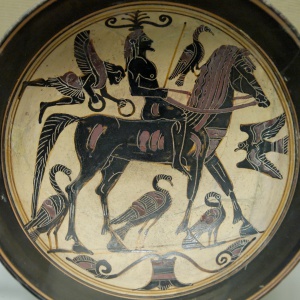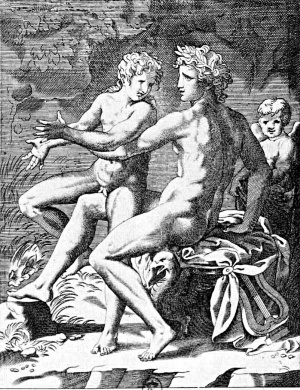(Boylove Documentary Sourcebook) - The Physically Expressed Sexual Aspect of Ancient Spartan Pederasty as Depicted in 'On the Republic' by Cicero

From Homosexuality in Greece and Rome: A Sourcebook of Basic Documents, edited by Thomas K. Hubbard (Berkeley: University of California Press, 2003). Footnote omitted.
Cicero (106–43 B.C.E.) was the most versatile orator and literary figure of the late Republic, and a statesman who attempted to preserve republican government at a time when it was under threat from many quarters. His Republic, completed in, is a philosophical treatise on the best form of government, but is not preserved in its entirety. In this fragmentary section he discusses Spartan customs.
[3] . . . by custom those entering the military are assigned guardians under whose control they remain during their first year. . . . not only as it is at Sparta, where boys learn how to plunder and steal. . . . it was disgraceful for adolescent boys not to have lovers. . . .
[4] . . . that a young man be naked. These are the kinds of things that have been traced far back, as though they were some sort of foundation for modesty. But, in fact, how absurd the way their young men exercise in the gymnasia! How lax the military training for their young cadets! How free and unrestricted their amorous fondling! There is no need to even mention the Eleans and the Thebans, for whom lust is granted unrestrained license in amorous relations with their young men of free birth. The Spartans themselves permit it all when it comes to amorous relations with their young men, the one exception being the filthy act itself. An exceedingly thin wall is the only barrier to this excepted act; for they allow lovers to sleep with each other and embrace, just so long as there is covering between them.

See also
- Adult friend
- Athenian pederasty
- Boylove
- Cretan pederasty
- Ephebophilia
- Erastes
- Eromenos
- Greek love
- Historical boylove relationships in ancient Greece
- Loved boy
- Minor-attracted person (dictionary)
- Pederasty in ancient Greece
- Pedophilia
- Philosophy of ancient Greek pederasty
- Young friend